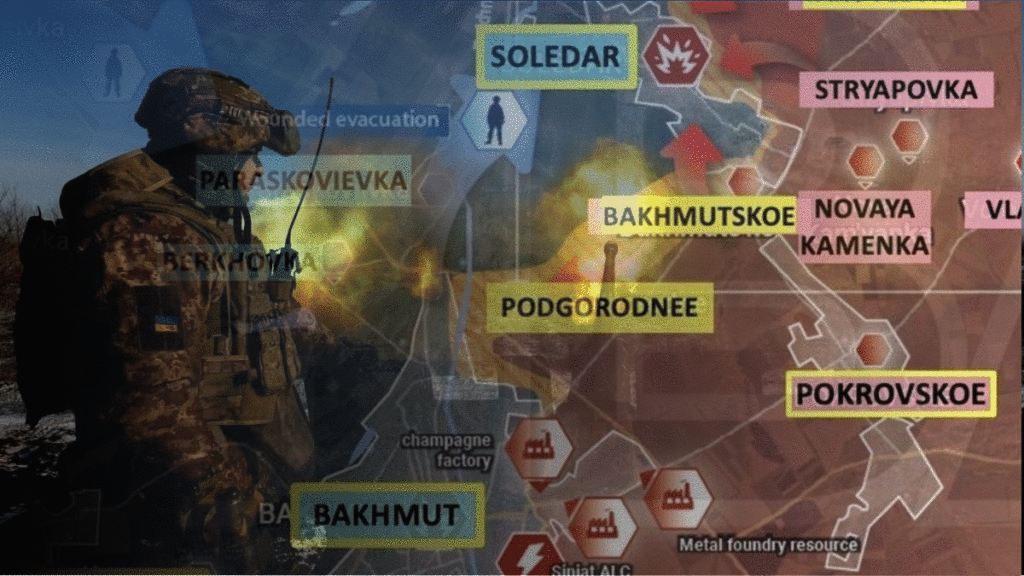
With Russia’s special operation in Ukraine to complete a year mark, which witnessed a huge turnaround in the world and especially in Europe, which saw instability for the first time after WW2, Russia led this special operation with the pretext of providing freedom to the Russian-speaking population in the region of Donbas. As to Russia, there has been continued shelling by Ukrainian forces along with the genocide of the Russian-speaking population since 2014. It was under this premise that Russia carried out the special operation. Since then, Russia has taken 4 provinces – Kherson, Lugansk, Donetsk, and ZaporZhye, under its control via the referendum it conducted.
The Early Days of War
In the early days of the war, Russia tried to attack Ukraine, thinking that they would be able to make Kyiv fall within days but there were specific problems associated with the Russian plan.
– Attack with no established logistics: In the early days of the war, Russia even attacked Lviv, in the western part of Ukraine, but that was done without ensuring logistics, and as a result, they faced losses in various regions of Ukraine
– Undermining the Ukrainian Army: The Ukrainian army is one of the biggest armies in Europe and is well-trained. They have been trained by the west since 2014 to fight against Russian sophisticated technology and continue receiving western military aid. continue to boost the Ukrainian army
– Fortified Zone: Ukraine for many years had been developing fortified zones across Ukraine which made it difficult for the Russians to capture cities during special operations. Though Russia tried to overcome such zones by limiting its presence to the south-east of Ukraine and further strengthening the logistics, its focus on the south-east helped them gain ground over the region of Lugansk, Donetsk, Zaporzhye and Kherson.
Russian forces also launched an offensive in the direction of Melitopol, Mariupol, Kharkiv, Kharkiv Deneproteosk, Odesa, and Kherson during the later months. While the Russian forces retreated from Kherson in October, they launched fresh offensives on Bakhmut and Soledar.
Why Bakhmut matters for Russia
Bakhmut has been called the Stalingrad of Ukraine. Some even say that it’s the meat grinder as the ballyhoo has been going for the last 10 months and has been escalated recently. But the question that remains is: why is Russia chasing this small Ukrainian town? We have found some of the possible reasons for the Russian escalation in Bakhmut.
1) Bakhmut is situated at the strategic supply line between Donetsk and Luhansk, and presence in this region would help Russia strengthen its logistics, which can further help them in their south-east territorial hold and advance.
2) Bakhmut’s success can change the course of Russia’s special military operation and can shift momentum to Russia, which has been primarily under the control of Ukraine in this war. Moreover, Bakhmut can reduce Russia’s strategic loss of retreating from Kherson
3) Bakhmut war has also been a prestige issue for Russia as this win can not only justify their Kerson withdrawal but also the recent losses they have been facing courtesy of the Ukrainian Counteroffensive.
4) Bakhmut can also help Russia gain visibility and accessibility towards the regions of Slovyansk and Kramatorsk, which are the energy regions of Ukraine, and holding this position can help Russia gain access to this resource-rich region.
5) Bakhmut’s victory would help Russia take complete control of the Donbas region, which carries almost 92% of Ukraine’s coal reserves.
As per the recent developments in Bakhmut and the statement made by Wagner chief Yevgeny Prigozhin, Russia has liberated Bakhmut; almost 6 to 7 battalions of Ukraine consisting of almost 25000 Ukrainian soldiers are dead and the majority of civilians have left the city. President Zelensky has also spoken about the situation in Bakhmut. He said that the situation is very grim and that nothing is left in the city except the dead remains.
The Battle of Bakhmut has shown the intense and most violent facets of war. International organisations and leaders have yet again called for joint efforts to stop the conflict. Moreover, for both Russia and Ukraine, it marks the most violent phase of the war, which only seems to be escalating rather than arrive at a conclusion.
(The author is a post-graduate student in International Relations at Kalinga university, Raipur. The opinions expressed are the author’s own)
Aayush Pal is a freelance writer on contemporary geopolitical developments. The views expressed in his work are entirely his own.
